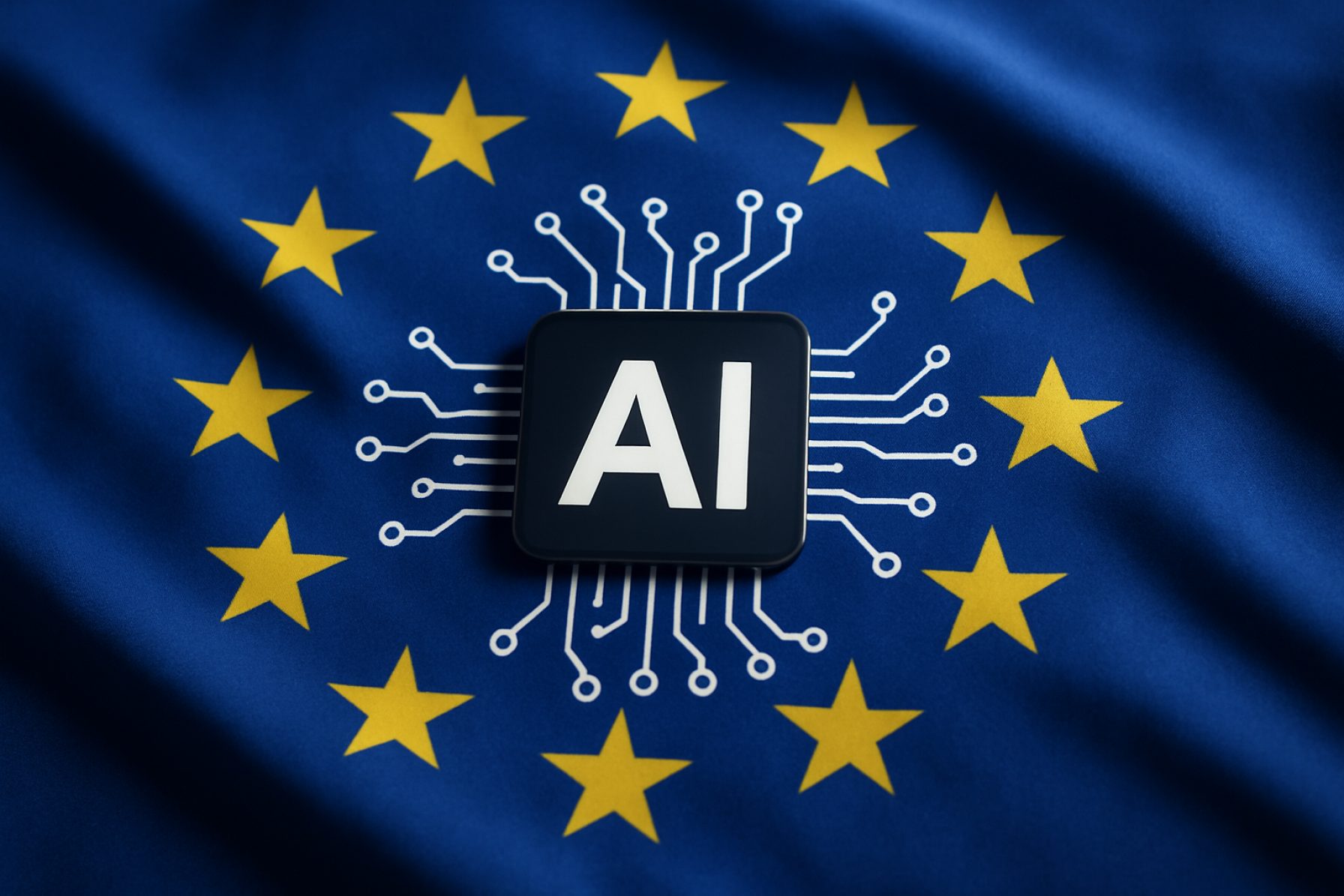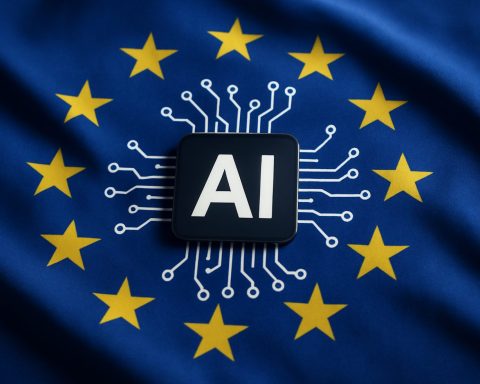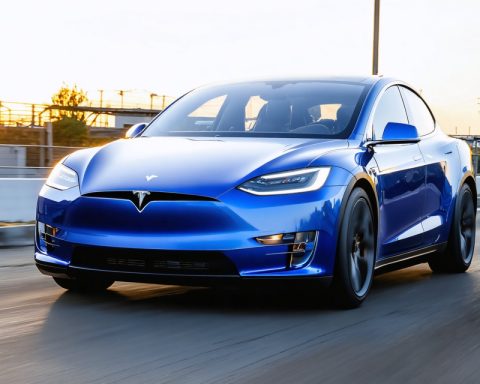Unveiling the Next Wave of Artificial Intelligence Progress Across the EU
- Market Overview: AI Adoption and Investment Patterns
- Technology Trends: Innovations Shaping the EU AI Ecosystem
- Competitive Landscape: Key Players and Strategic Moves
- Growth Forecasts: Projections for AI Expansion
- Regional Analysis: Country-Level Insights and Hotspots
- Future Outlook: Anticipated Developments and Policy Directions
- Challenges & Opportunities: Navigating Barriers and Unlocking Potential
- Sources & References
“Suriname, a small nation on the Guiana Shield of South America, is undergoing a digital transformation alongside its neighbors Guyana and French Guiana.” (source)
Market Overview: AI Adoption and Investment Patterns
The European Union (EU) continues to accelerate its adoption and investment in artificial intelligence (AI), positioning itself as a global leader in responsible and innovative AI deployment. As of June 2025, the EU’s AI market is projected to reach €28.5 billion, reflecting a compound annual growth rate (CAGR) of 22% since 2022 (European Commission). This growth is driven by robust public and private sector investments, regulatory clarity, and a focus on ethical AI frameworks.
- Policy and Regulation: The EU’s landmark AI Act, formally adopted in early 2025, has set a global benchmark for AI governance. The Act introduces a risk-based approach, mandating strict requirements for high-risk AI systems and promoting transparency and accountability. This regulatory certainty has encouraged both domestic and international investors to increase their stakes in European AI ventures.
- Investment Patterns: Venture capital funding for AI startups in the EU reached €7.2 billion in the first half of 2025, a 15% increase year-on-year (Sifted). Key investment hotspots include Germany, France, and the Netherlands, with emerging activity in Central and Eastern Europe. Notably, sectors such as healthcare, manufacturing, and financial services are attracting the most capital, reflecting the EU’s strategic priorities.
- Corporate Adoption: Over 60% of large enterprises in the EU have integrated AI into their operations, up from 48% in 2023 (Eurostat). Adoption is particularly strong in process automation, predictive analytics, and customer service. SMEs are also catching up, supported by EU-funded initiatives like the Digital Europe Programme and AI innovation hubs.
- Research and Talent: The EU has increased funding for AI research, with Horizon Europe allocating €2.1 billion to AI-related projects in 2025. The region is also addressing the talent gap through cross-border education programs and partnerships with leading universities (Horizon Europe).
In summary, the EU’s AI landscape in June 2025 is characterized by strong investment momentum, progressive regulation, and a commitment to ethical and inclusive AI. These factors are expected to sustain the region’s competitive edge and foster innovation across industries.
Technology Trends: Innovations Shaping the EU AI Ecosystem
The European Union’s AI ecosystem is experiencing rapid transformation in 2025, driven by regulatory advances, increased investment, and a surge in cross-border collaborations. The implementation of the EU AI Act, which came into force in 2024, is shaping the development and deployment of AI technologies across member states, emphasizing ethical standards, transparency, and human oversight.
- Regulatory Leadership: The EU AI Act has positioned Europe as a global leader in responsible AI. The Act’s risk-based approach categorizes AI systems and imposes strict requirements on high-risk applications, such as biometric identification and critical infrastructure. This regulatory clarity is attracting both startups and established tech firms seeking a stable environment for innovation (Euractiv).
- Investment and Funding: In 2025, the European Commission increased its AI funding to over €2.5 billion, supporting research, development, and deployment of trustworthy AI. The Networks of AI Excellence Centres continue to foster collaboration between academia and industry, accelerating breakthroughs in natural language processing, computer vision, and robotics.
- Generative AI and Multilingual Models: European firms are making significant strides in generative AI, with a focus on multilingual and culturally aware models. Projects like Mistral AI and Aleph Alpha are attracting major investments, aiming to provide European alternatives to US-based AI giants.
- AI for Sustainability: The EU is leveraging AI to advance its Green Deal goals. AI-driven solutions are being deployed in energy management, smart agriculture, and climate modeling, with initiatives like AI4EU supporting the integration of AI into sustainability projects.
- Talent and Skills Development: Addressing the AI talent gap remains a priority. The Digital Education Action Plan and new public-private partnerships are expanding AI education and upskilling programs, aiming to train over 1 million AI specialists by 2030.
Overall, the EU’s AI landscape in June 2025 is defined by a balance of innovation, regulation, and societal impact, positioning Europe as a key player in the global AI race.
Competitive Landscape: Key Players and Strategic Moves
The competitive landscape for artificial intelligence (AI) in the European Union (EU) is rapidly evolving, driven by regulatory changes, increased investment, and strategic partnerships. As of June 2025, the EU’s AI market is projected to reach €22.4 billion, with a compound annual growth rate (CAGR) of 18.7% from 2023 to 2025 (Statista).
-
Key Players:
- SAP SE (Germany): Continues to lead in enterprise AI solutions, expanding its AI-powered ERP and analytics offerings. In May 2025, SAP announced a €1.2 billion investment in AI R&D centers across Germany and France (SAP News).
- Siemens AG (Germany): Focuses on industrial AI, particularly in manufacturing automation and smart infrastructure. Siemens’ June 2025 partnership with French startup Owkin aims to accelerate AI-driven healthcare diagnostics (Siemens Press).
- DeepMind (UK, now part of Alphabet): Despite Brexit, DeepMind maintains a strong EU presence, collaborating with European universities and hospitals on AI for drug discovery and climate modeling (DeepMind Blog).
- Atos (France): A leader in AI-powered cybersecurity and cloud services, Atos launched its new “Trustworthy AI” platform in April 2025, aligning with the EU AI Act’s transparency requirements (Atos Newsroom).
- Smaller Innovators: Startups like Aleph Alpha (Germany) and Helsing (Germany) are gaining traction in generative AI and defense applications, respectively, securing major funding rounds in early 2025 (Sifted).
-
Strategic Moves:
- Cross-border Collaborations: The EU’s AI4EU initiative continues to foster collaboration among member states, with new joint research hubs announced in Spain and Italy in June 2025 (AI4EU News).
- Compliance and Regulation: The finalization of the EU AI Act in May 2025 has prompted major players to accelerate compliance efforts, with increased investment in explainable and ethical AI systems (European Commission).
- Public-Private Partnerships: The European Commission’s €2 billion “AI for Europe” fund, launched in March 2025, is driving new partnerships between tech giants and public institutions (Digital Strategy EC).
Overall, the EU’s AI sector is marked by robust competition, regulatory-driven innovation, and a growing emphasis on ethical and trustworthy AI, positioning Europe as a global leader in responsible AI development.
Growth Forecasts: Projections for AI Expansion
The European Union (EU) is experiencing rapid growth in artificial intelligence (AI) adoption, driven by robust policy frameworks, increased investment, and a surge in AI-driven innovation. As of June 2025, the EU’s AI market is projected to reach €45 billion, up from €32 billion in 2023, reflecting a compound annual growth rate (CAGR) of approximately 18%.
- Policy and Regulation: The implementation of the EU AI Act in 2024 has established a harmonized legal framework, fostering trust and accelerating AI adoption across member states. The Act’s risk-based approach is expected to boost investment in compliant AI solutions, particularly in healthcare, finance, and manufacturing.
- Investment Trends: Venture capital and public funding for AI startups in the EU reached a record €8.7 billion in the first half of 2025, a 22% increase year-on-year. Major economies such as Germany, France, and the Netherlands are leading in both private and public sector investments.
- Sectoral Growth: The healthcare sector is forecasted to see the fastest AI adoption, with spending expected to grow by 25% in 2025, driven by advancements in diagnostics and personalized medicine (European Commission). Manufacturing and logistics are also set for double-digit growth, leveraging AI for automation and supply chain optimization.
- Talent and Research: The EU is investing heavily in AI research and talent development, with over €2 billion allocated to AI research programs in 2025. Initiatives such as the European AI Alliance and the Digital Europe Programme are enhancing collaboration between academia, industry, and government.
Looking ahead, analysts predict that by 2030, the EU’s AI market could surpass €110 billion, positioning Europe as a global leader in ethical and innovative AI deployment. The combination of regulatory clarity, investment momentum, and a skilled workforce is expected to sustain robust AI growth across the region.
Regional Analysis: Country-Level Insights and Hotspots
The European Union (EU) continues to accelerate its adoption and regulation of artificial intelligence (AI), positioning itself as a global leader in responsible AI development. As of June 2025, several key trends and developments are shaping the AI landscape across EU member states.
- AI Act Implementation: The EU’s landmark AI Act, formally adopted in 2024, is now in its initial implementation phase. The Act introduces a risk-based framework, with strict requirements for high-risk AI systems in sectors such as healthcare, transportation, and finance. Member states are establishing national supervisory authorities, and the European AI Office has begun issuing guidance on compliance and enforcement.
- Investment and Funding: The EU has increased its AI investment, with the Digital Europe Programme allocating over €2.5 billion for AI research, testing, and deployment between 2024 and 2027. France, Germany, and the Netherlands are leading in public and private AI funding, with France’s France 2030 plan dedicating €1.5 billion to AI innovation.
- AI Startups and Ecosystems: The EU’s AI startup ecosystem is thriving, with over 2,000 active AI startups as of 2025 (EU-Startups). Hotspots include Paris, Berlin, Amsterdam, and Barcelona, each fostering clusters in areas like generative AI, robotics, and AI for sustainability.
- Talent and Skills Development: The EU is addressing the AI talent gap through initiatives such as the Digital Education Action Plan and cross-border AI master’s programs. The number of AI specialists in the EU grew by 18% year-on-year in 2024, with Germany and Sweden leading in AI workforce expansion.
- Ethics and Trust: The EU’s focus on ethical AI is evident in the adoption of the Ethics Guidelines for Trustworthy AI. These guidelines are now being integrated into public procurement and corporate governance, setting a global benchmark for responsible AI.
In summary, the EU’s coordinated regulatory approach, robust funding, and emphasis on ethics and talent development are making it a key AI hotspot. As the AI Act’s provisions take effect, the region is expected to see increased innovation, cross-border collaboration, and global influence in shaping the future of AI.
Future Outlook: Anticipated Developments and Policy Directions
The European Union (EU) continues to position itself as a global leader in the regulation and development of artificial intelligence (AI). As of June 2025, several key developments and policy directions are shaping the future of AI across the continent.
- Implementation of the EU AI Act: The landmark EU AI Act, formally adopted in 2024, is now entering its phased implementation. The Act introduces a risk-based framework, with strict requirements for high-risk AI systems in sectors such as healthcare, transportation, and law enforcement. Companies are investing in compliance infrastructure, and the European Artificial Intelligence Board (EAIB) has begun issuing guidance on conformity assessments and post-market monitoring.
- Investment and Innovation: The EU has increased funding for AI research and innovation through the Horizon Europe program, allocating over €2 billion for 2025-2027. This funding supports projects in trustworthy AI, robotics, and AI for climate action. The European Innovation Council (EIC) is also accelerating AI startups, with a focus on ethical and sustainable solutions.
- Data Governance and Digital Infrastructure: The Data Act and the European Data Strategy are facilitating secure data sharing and interoperability, crucial for AI development. The EU is investing in high-performance computing and cloud infrastructure, aiming to reduce reliance on non-European providers and strengthen digital sovereignty.
- AI Talent and Skills: Addressing the AI skills gap remains a priority. The Digital Education Action Plan is expanding AI curricula in universities and vocational training, while public-private partnerships are fostering lifelong learning in AI and data science.
- International Cooperation and Standards: The EU is actively engaging with global partners to harmonize AI standards and promote responsible AI. Recent agreements with the US and Japan focus on interoperability, ethical guidelines, and joint research initiatives (European Commission).
Looking ahead, the EU’s approach to AI is expected to balance innovation with robust safeguards, setting a precedent for global AI governance. Ongoing policy reviews and stakeholder consultations will likely refine the regulatory landscape, ensuring that AI development aligns with European values of transparency, accountability, and human rights.
Challenges & Opportunities: Navigating Barriers and Unlocking Potential
The European Union (EU) continues to position itself as a global leader in artificial intelligence (AI) governance, innovation, and ethical deployment. As of June 2025, the landscape is shaped by both significant challenges and promising opportunities, driven by regulatory advancements, investment trends, and evolving market dynamics.
- Regulatory Landscape: The EU’s landmark AI Act, formally adopted in early 2024, is now in its initial implementation phase. This regulation introduces a risk-based framework for AI applications, emphasizing transparency, accountability, and human oversight. While the Act aims to foster trust and safety, businesses face challenges in compliance, particularly SMEs lacking resources for extensive documentation and risk assessments (Euractiv).
- Investment and Innovation: The EU has increased funding for AI research and startups, with the Digital Europe Programme and Horizon Europe allocating over €2 billion to AI projects through 2025. However, the region still lags behind the US and China in private investment and unicorn creation, highlighting the need for more venture capital and cross-border collaboration (Statista).
- Talent and Skills Gap: The demand for AI specialists in the EU outpaces supply, with a reported shortfall of over 500,000 skilled professionals as of mid-2025 (Euronews). Initiatives to upskill the workforce and attract global talent are underway, but competition remains fierce.
- Data Access and Infrastructure: The EU’s focus on data sovereignty, exemplified by the Data Act, creates opportunities for secure data sharing and innovation. Yet, fragmented data standards and limited access to high-quality datasets remain barriers for AI developers.
- Opportunities in Key Sectors: AI adoption is accelerating in healthcare, manufacturing, and public services, supported by EU pilot projects and public-private partnerships. The push for trustworthy AI and digital sovereignty is opening new markets for European AI solutions, especially in privacy-sensitive applications (European Commission).
In summary, while regulatory complexity and talent shortages present hurdles, the EU’s proactive approach to AI governance and investment is unlocking significant potential for innovation, ethical leadership, and global competitiveness.
Sources & References
- AI in the European Union: Latest Developments and Trends (June 2025)
- European Commission
- Data Act
- Euractiv
- Euronews
- Green Deal
- AI4EU
- Statista
- Siemens Press
- DeepMind Blog
- Atos Newsroom
- AI4EU News
- €2 billion
- €110 billion









